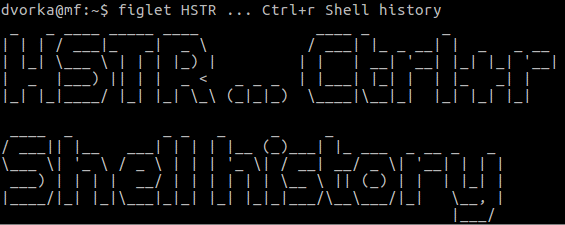Easily view, navigate, search history commands 
[htsr](https://github.com/dvorka/hstr)
_**Install**_ : ```bash sudo apt-get install hstr -y && hstr --show-configuration >> ~/.bashrc ``` > **Note** - Other installation info - [github.com/dvorka/hstr/blob/master/INSTALLATION.md](https://github.com/dvorka/hstr/blob/master/INSTALLATION.md#installation) **_Usage_** : ```bash hstr keyword ``` Interactive searching🔎 : `Ctrl+R` >**Note** - More info on usage : > man hstr #
 _**Install**_ :
```bash
sudo apt-get install fd-find -y && sudo apt-get install fzf -y
```
_**Add binary link**_(set correct bin directory location if error) :
```bash
ln -s $(which fdfind) ~/.local/bin/fd
```
_Restart terminal_
> **Note** - Other installation info :
_**Install**_ :
```bash
sudo apt-get install fd-find -y && sudo apt-get install fzf -y
```
_**Add binary link**_(set correct bin directory location if error) :
```bash
ln -s $(which fdfind) ~/.local/bin/fd
```
_Restart terminal_
> **Note** - Other installation info : 